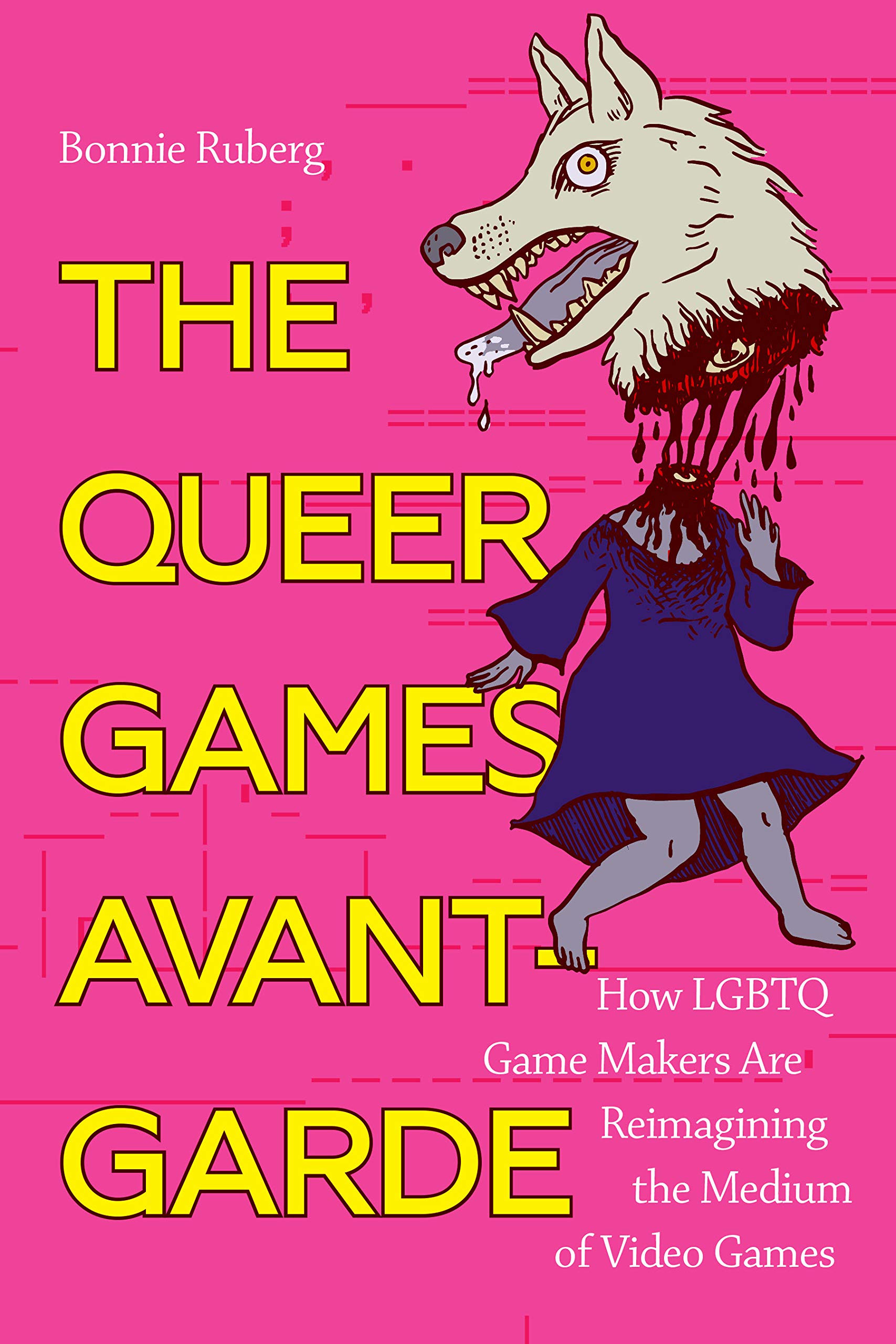Pick of the Week: The Queer Games Avant-Garde
The Queer Games Avant-Garde: How LGBTQ Game Makers Are Reimagining the Medium of Video Games by Bonnie Ruberg
Through a series of interview-based profiles of influential and innovative contemporary LGBTQ game-makers and activists, THE QUEER GAMES AVANT-GARDE explores the queer gaming world as an artistic and social movement. Bonnie Ruberg shows us how members of what they call the “queer games avant-garde”–A contemporary vanguard leading video games in more experimental and markedly queer directions-are reimagining video games as a medium for the expression of non-heteronormative desire and counter-hegemonic world-building. The volume foregrounds the voices of queer game-makers as they speak about their influences, their goals, and the challenges they face, as well as the meanings, messages, and even problems with the games they’ve created. Ruberg’s interviews reveal how this new critical mass of game-makers are redefining the medium by placing queerness at the front and center of video games.
The book opens with an engaging introduction to the queer games movement and an overview of the network of designers and games that make up this avant-garde. After situating the queer games avant-garde in its artistic and cultural contexts, the book turns to focus on individual members of the movement and the games they have created. The volume’s twenty-one profiles are divided into seven thematically organized sections, addressing topics such as queer representation in games, queer game-making practices, and intersectional perspectives on the queer games avant-garde. The first section, for example, profiles game-makers who directly include queer people in their games. In contrast, the game-makers interviewed in the following section rarely include direct representation but rather engage queerness conceptually through their artistic and aesthetic practices.
One section focuses on the influence of feminist art practices and avant-garde art movements on the work of queer game-makers, while another looks at intersectionality in queer games. A final section looks to the future of queer games, mainstream games, and the technology industry, through the work of game-makers seeking change and a better way forward for video games. THE QUEER GAMES AVANT-GARDE is an accessible overview of the queer gaming world and will be of interest to scholars and students of cultural studies, game studies, media studies, and LGBTQ studies, as well as to a broader readership with an interest in queer video games. (From publisher.)

